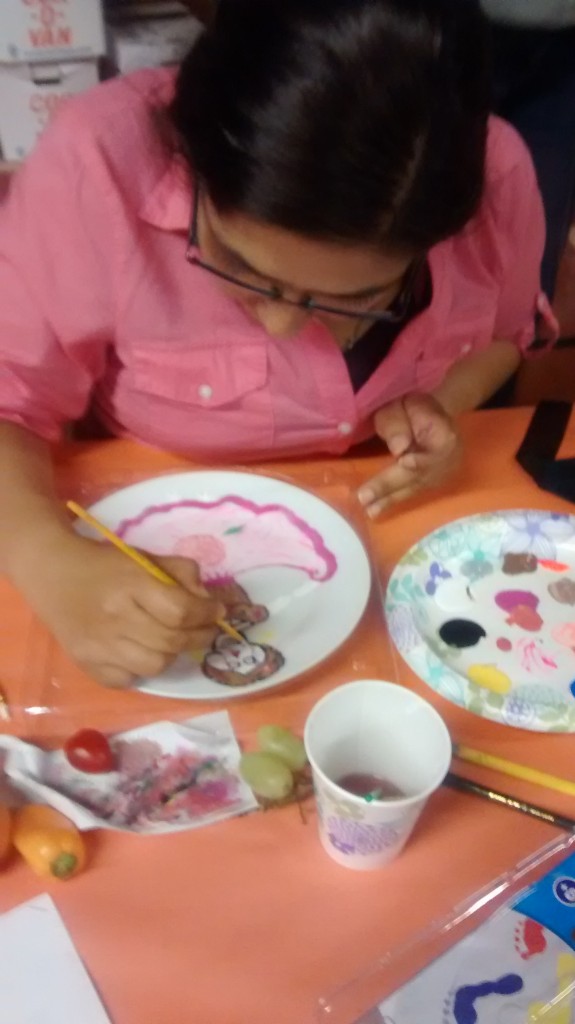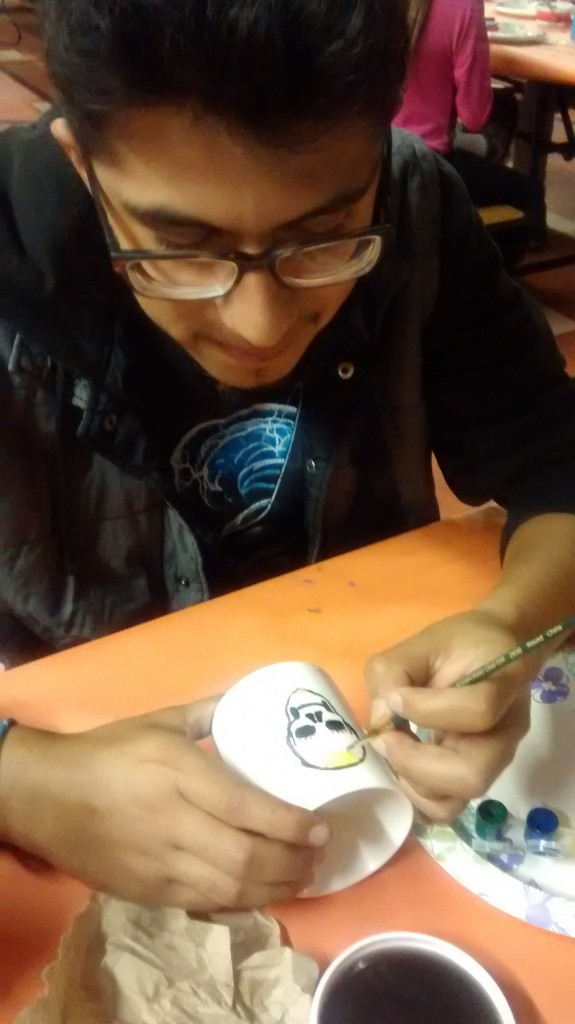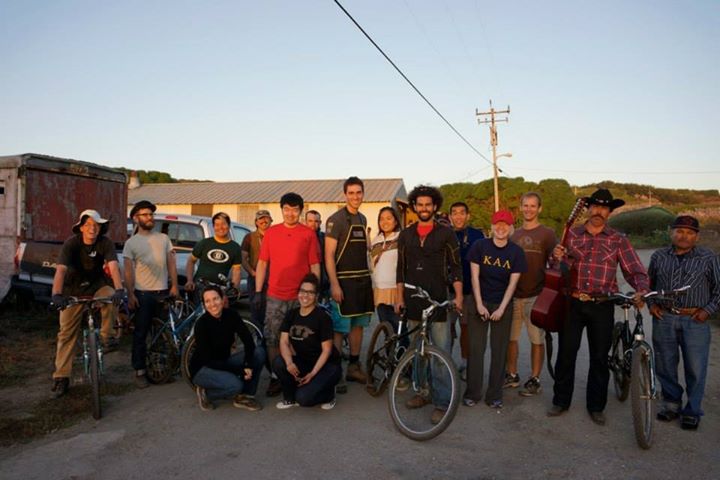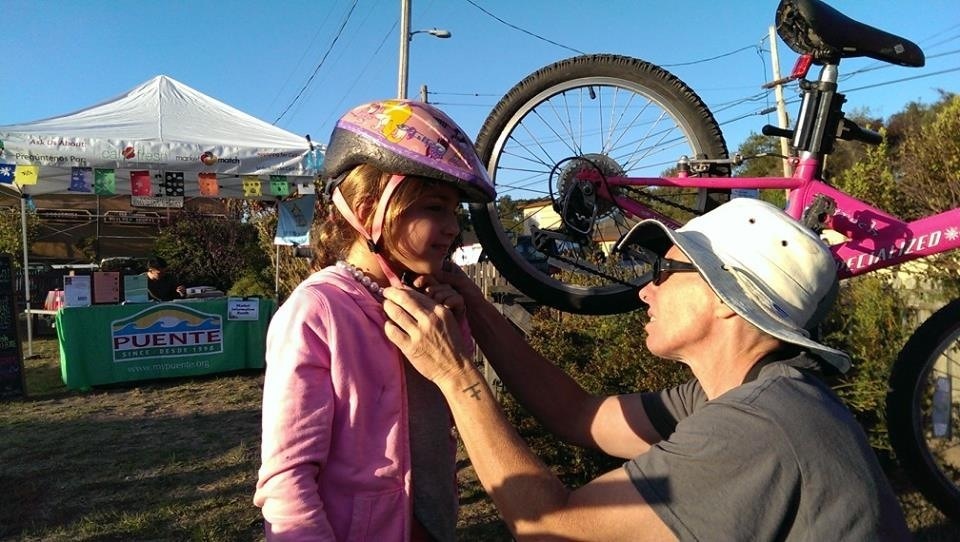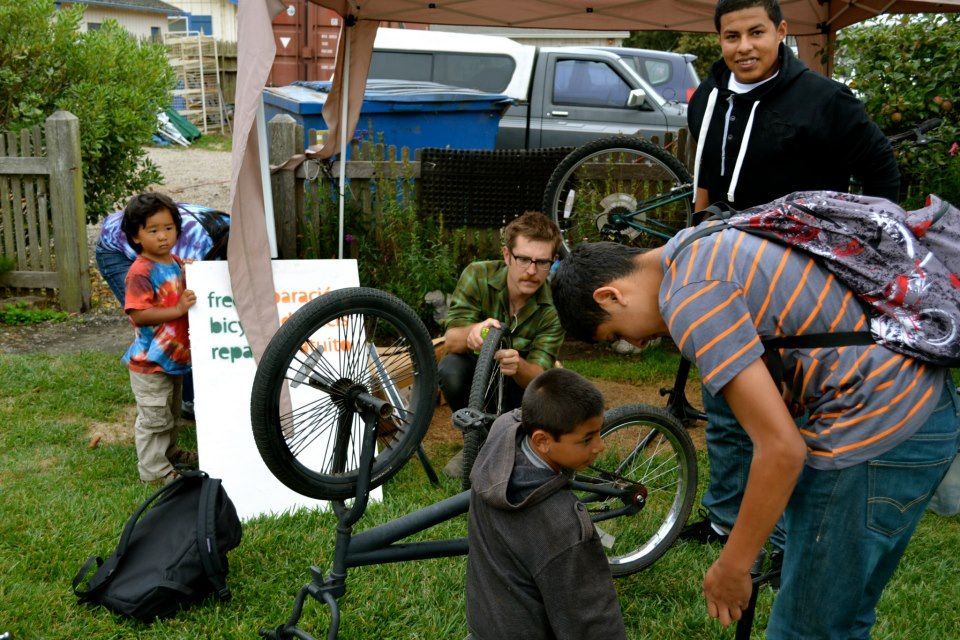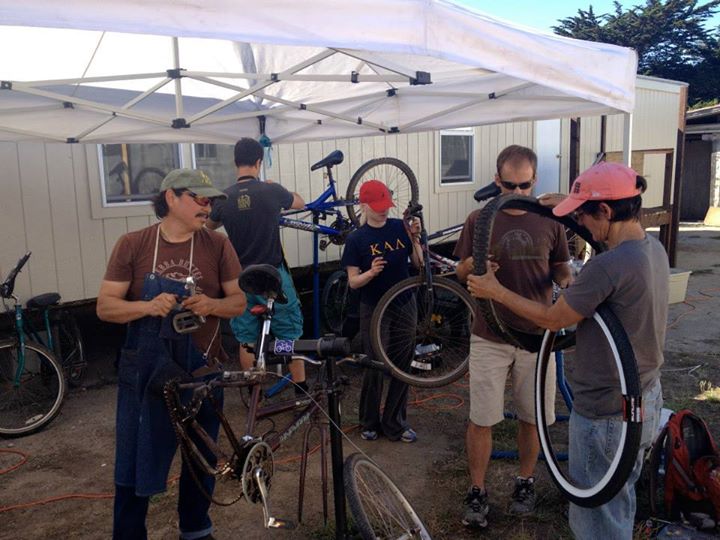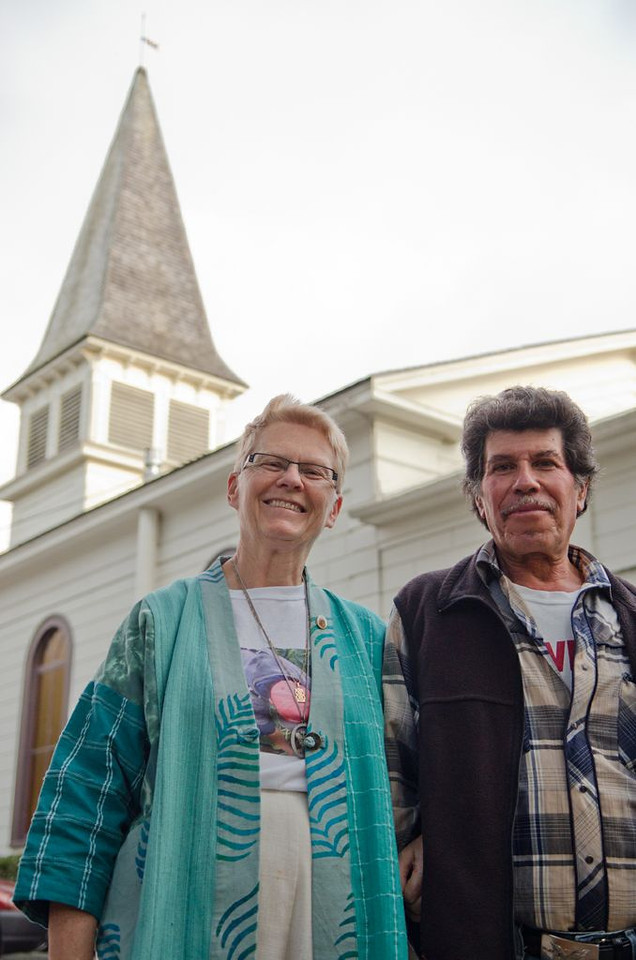Today Puente de la Costa Sur (PUENTE) Board President Laura Franco announces that Rita Mancera will succeed Kerry Lobel as Executive Director, effective January 1, 2016. Lobel will be taking on a new role as Puente’s Strategic Projects Advisor.
“For Puente, it’s the best of all possible worlds to keep us both but in new roles. Rita and I have worked side-by-side for nine years and she is terrific. For me, the shift in roles is fantastic. I’ve longed to work on the larger infrastructure projects, and there is so much to do,” says Lobel.
Mancera lives in Pescadero with her husband Jim and son William, who attends Pescadero Elementary. She has served as Puente’s Community Builder, then its Program Director, and currently the Deputy Executive Director.
“These are my people and this is my community. I’m going to take this role personally,” she says.
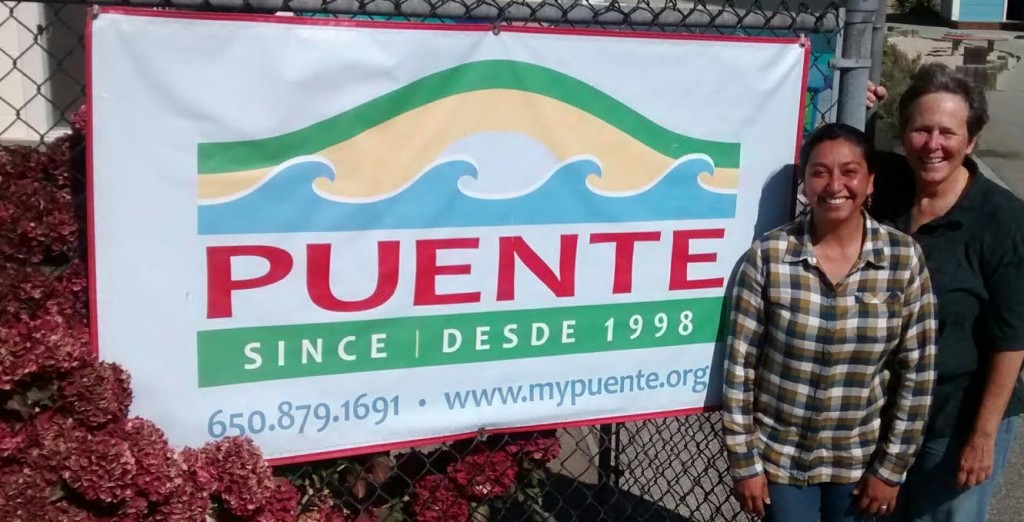
Current Executive Director Kerry Lobel, right, with soon-to-be Executive Director Rita Mancera at the Puente offices in Pescadero.
Lobel has presided over an extraordinary period of growth for Puente, which has gone from 3 employees and a $185,127 budget in 2006 – the year Puente formally merged with North Street Community Resource Center – to a budget of $2.3 million with 27 full and part-time staff.
Looking back, Lobel is most proud of turning Puente into a community resource center with programs that include:
- Puente’s Learning Center, which now offers 15 different adult education programs, including new parent engagement and early childhood education efforts in partnership with the La Honda-Pescadero Unified School District;
- The Pescadero Grown farmers’ market, now in its fifth year, where locals buy and sell produce at a deep discount to qualified shoppers;
- Puente’s La Honda office, which offers Spanish classes, behavioral health and safety net services;
- Equipping Puente staff with the advanced training and qualifications needed to handle complex immigration, citizenship and documentation requests;
- A brand-new onsite health clinic as well as a community health worker outreach program, in partnership with San Mateo County and Supervisor Don Horsley; and
- A fully staffed behavioral health team that provides individual, family and group counseling to South Coast residents as well as in-school programs that build community resilience.
Lobel singles out the Youth Leadership and Development Program as her greatest pride and joy. Puente helps prepare youth for college and the workplace by placing them with local nonprofits and other businesses where they learn marketable skills and grow into confident, engaged adults. In 2007, the first four teens entered the program. Now 126 youth have participated.
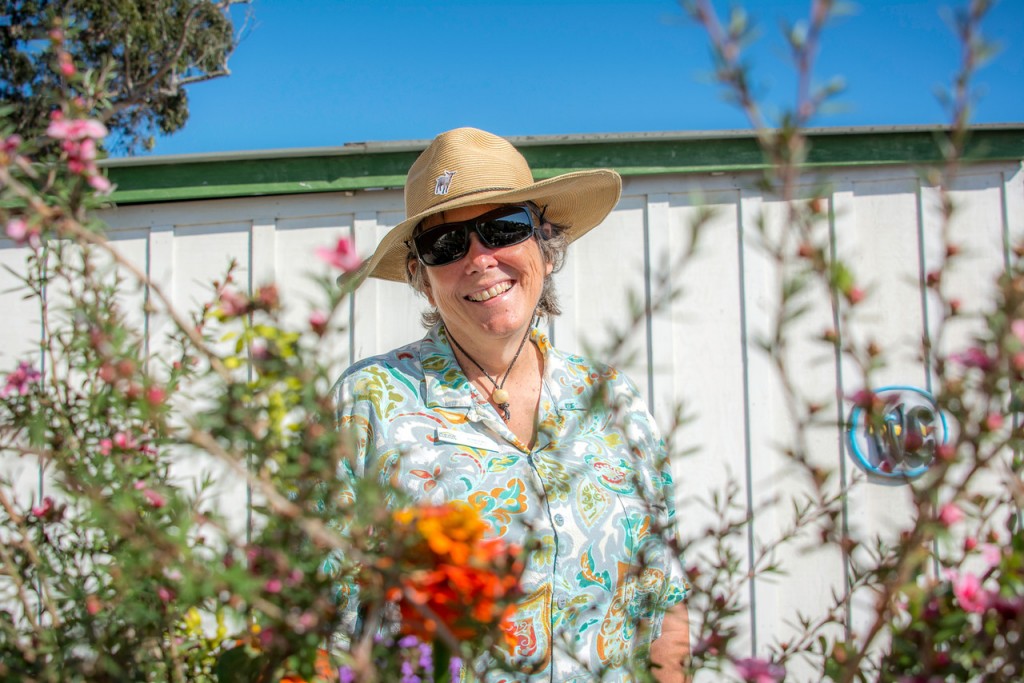
Kerry Lobel at the 2014 Fall Harvest Celebration
“I love our youth program so much,” says Lobel. “I’ve seen so many changes in the youth, their parents, and how the community views young people – with respect.”
Puente Board President Laura Franco praised Lobel’s leadership style with her trademark “utter calmness and equanimity in the face of incredible challenges to Puente’s mission.”
Together, Lobel and Mancera have guided Puente through the often difficult nonprofit funding waters, such as the recent loss of federal funding to the youth program. That rescue effort is still underway, with a matching grant for all donations up to $40,000.
“Rita has been my partner for my entire tenure at Puente. She’s given her body and soul to the organization,” says Lobel.
Like Lobel, Mancera has been with Puente since 2006. She was born and raised in Mexico and immigrated to Pescadero after marrying her husband Jim. She is known for her hands-on leadership style and vivacious personality. She loves to learn, and over the years her evolving roles at Puente have given her a chance to learn all kinds of unexpected new skills. She has become a paralegal, a Board of Immigration Appeals (BIA) accredited legal worker, a notary public and Zumba instructor. Read more about about Rita here.
“We are an incubator of local leadership. I’m a product of that culture. If I were not given the opportunity to continue growing within Puente, I would not be where I am now. I want to make sure that remains rooted in what we do,” says Mancera.
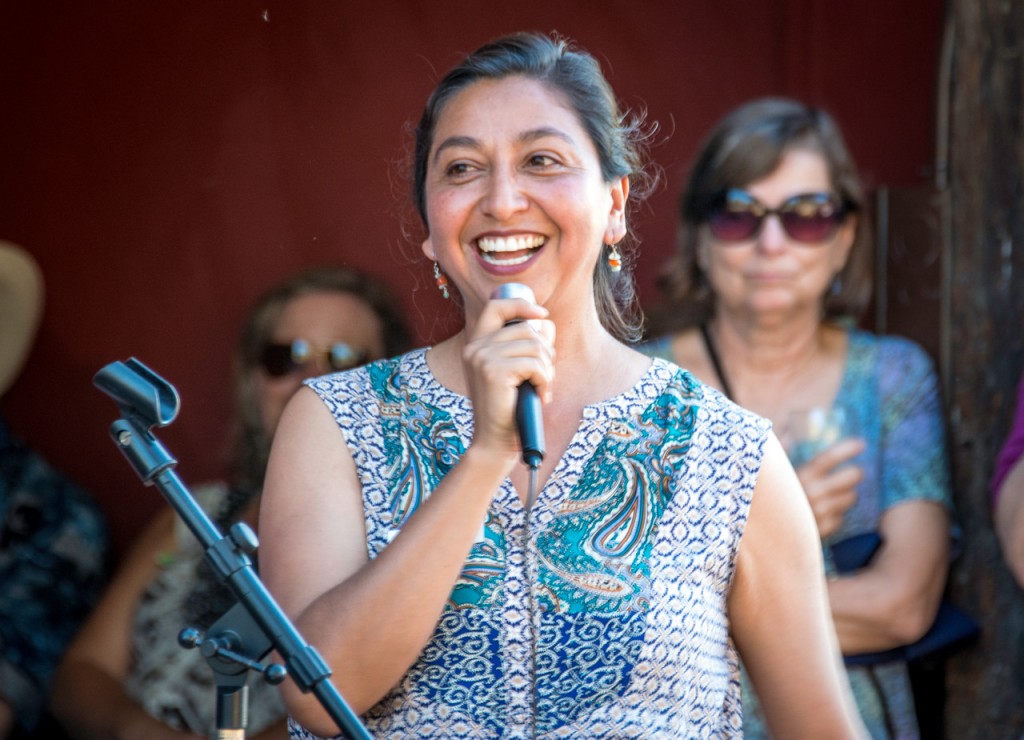
Rita Mancera at the 2015 Fall Harvest Celebration
As a local mom and PTA member, Mancera has close ties to the local school district and a unique understanding of the needs of local parents and students. She cites Puente’s growing education programs and the sustainability of the youth program as major priorities going forward.
“I feel that everything I’ve done at Puente one way or another is related to education. Culturally, we Latinas say an education is something no one can take away from you,” adds Mancera.
Starting in January, Lobel will use her role as Strategic Projects Advisor to help realize major Pescadero infrastructure projects that need some political muscle to get done: improved housing for farm workers, a child care center, a health center, and an office upgrade for Puente.
“I really want to take the things I’ve learned and apply them to seemingly intractable problems. I want to focus on the big picture and I can’t do that and run Puente at the same time,” Lobel says. She will also look forward to traveling with her partner, Marta Drury, and honing her photography skills.
Mancera will be the third leader to lead Puente in its 17-year history. “She’s next in line in a very deliberate strategy developed by Puente founder Wendy Taylor to build community leadership,” says Lobel. “With Rita setting the course and the strong support of our community, Puente can realize the ambitions and plans we have, which are bigger than ever.”

The Puente staff and board in August 2015.

